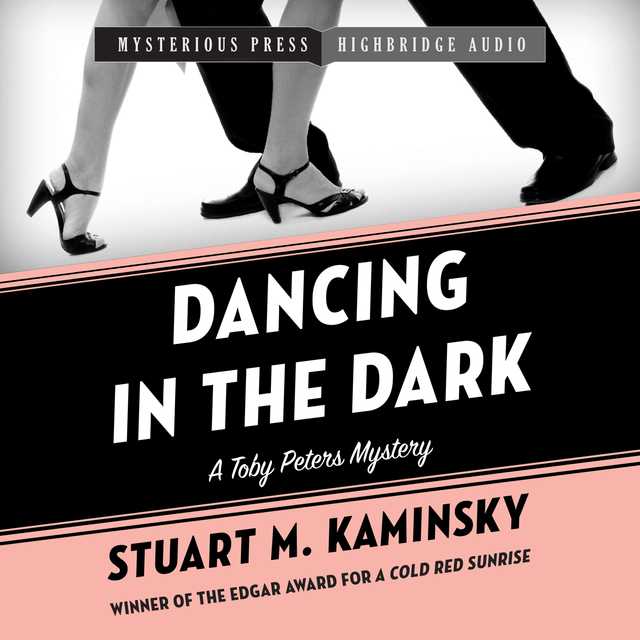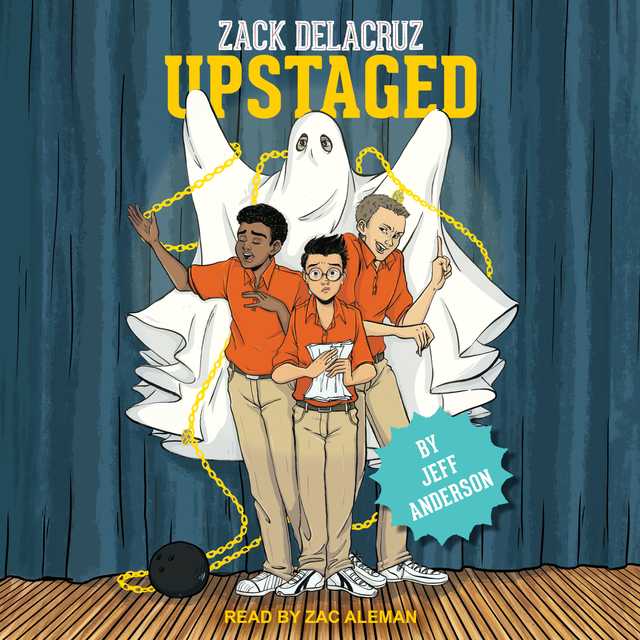Slowness Audiobook Summary
Milan Kundera’s lightest novel, a divertimento, an opera buffa, Slowness is also the first of this author’s fictional works to have been written in French.
Disconcerted and enchanted, the reader follows the narrator of Slowness through a midsummer’s night in which two tales of seduction, separated by more than two hundred years, interweave and oscillate between the sublime and the comic. Underlying this libertine fantasy is a profound meditation on contemporary life: about the secret bond between slowness and memory, about the connection between our era’s desire to forget and the way we have given ourselves over to the demon of speed. And about “dancers” possessed by the passion to be seen, for whom life is merely a perpetual show emptied of every intimacy and every joy.
Other Top Audiobooks
Slowness Audiobook Narrator
Richmond Hoxie is the narrator of Slowness audiobook that was written by Milan Kundera
Milan Kundera is the author of the novels The Joke, Farewell Waltz, Life Is Elsewhere, The Book of Laughter and Forgetting, The Unbearable Lightness of Being, and Immortality, and the short-story collection Laughable Loves–all originally written in Czech. His most recent novels Slowness, Identity, and Ignorance, as well as his nonfiction works The Art of the Novel, Testaments Betrayed, The Curtain, and Encounter, were originally written in French.
About the Author(s) of Slowness
Milan Kundera is the author of Slowness
More From the Same
- Publisher : HarperAudio
- Abraham
- American Gods [TV Tie-In]
- Dead Ringer
- House of Sand and Fog
- Prey
Slowness Full Details
| Narrator | Richmond Hoxie |
| Length | 3 hours 26 minutes |
| Author | Milan Kundera |
| Publisher | HarperAudio |
| Release date | July 31, 2012 |
| ISBN | 9780062215567 |
Additional info
The publisher of the Slowness is HarperAudio. The imprint is HarperAudio. It is supplied by HarperAudio. The ISBN-13 is 9780062215567.
Global Availability
This book is only available in the United States.
Goodreads Reviews
Ahmad
August 09, 2021
La lenteur = Slowness, Milan KunderaSlowness, published in 1995 in France, is a novel written in French by Milan Kundera. In the book, Kundera manages to weave together a number of plot lines, characters and themes in just over 150 pages. While the book has a narrative, it mainly serves as a way for Kundera to describe a philosophy about modernity, technology, memory and sensuality.The novel is a meditation on the effects of modernity upon the individual's perception of the world. It is told through a number of plot lines that slowly weave together until they are all united at the end of the book.Kundera, as narrator, visits a chateau on vacation and tells a story that seems to be a combination of fiction and fact.A Chevalier from eighteenth-century France visits the chateau and experiences a night of carefully orchestrated sensual pleasure with its owner, Madame de T.Vincent, Kundera's friend, visits the hotel and pursues a romance with a girl met in a bar.Berck, a "dancer", meets a woman who once scorned him at the same conference and shows his emptiness to her.Immaculata, the woman who scorned Berck, must deal with her disappointment at learning Berck's apparent perfection is actually a facade.عنوانهای چاپ شده در ایران: «کُندی»؛ «آهستگی»؛ نویسنده: میلان کوندرا؛ تاریخ نخستین خوانش: سال 2002میلادیعنوان: کندی؛ نویسنده: میلان کوندرا؛ مترجم: رویا منجم؛ تهران، نگاه سبز، 1380؛ در 128ص، شابک 9645639980؛ از همین مترجم با مشخصات نشر: تهران، علم، 1383، در 170ص، شابک 9644054164؛ موضوع: داستانهای نویسندگان چک - سده 20معنوان: آهستگی؛ نویسنده: میلان کوندرا؛ مترجم: کیومرث پارسای؛ مشخصات نشر: تهران، علم، 1386، در 227ص، شابک 9789644057533؛عنوان: آهستگی؛ نویسنده: میلان کوندرا؛ مترجم: نیما زاغیان؛ انتشارات روشنگران، 1383؛ در 152ص، شابک 9789646751798؛عنوان: آهستگی؛ نویسنده: میلان کوندرا؛ مترجم: حمیده جاهد؛ مشخصات نشر: تهران، سروینه، 1383، در 156ص، شابک 9649469346؛عنوان: آهستگی؛ نویسنده: میلان کوندرا؛ مترجم: مینا سرکیسیان؛ مشخصات نشر آلمان، نشر آیدا، 2003، در 131ص، شابک: ؟؛عنوان: آهستگی؛ نویسنده: میلان کوندرا؛ مترجم: دریا نیامی؛ در 160ص؛سرچشمه ی ترس در آینده است؛ کسی که آینده ای ندارد، از چیزی نمیهراسد؛ اندیشیدم: هراس و ترس باید دریاچه ای باشد، که سرچشمه ای دارد؛ سرعت اما تجسم لذتی است، که انقلاب تکنولوژی به مردمان بخشید؛ انسان بدون تکنولوژی، تنها میتواند بر توانایی جسم خود، تکیه کند؛ یک دونده، میتواند به سرعت دست یابد، اما باید به تاولها و خستگی خویش نیز بیندیشد، وزن خود و سن و سال خویش را، هنگام دویدن احساس میکند؛ اما اگر برای دستیابی به سرعت، به او ماشینی واگذار شود، دیگر آن احساس هنگام دویدن را، دست نایافتنی خواهد پنداشت؛ برای همین است که میگویند: لذت آهستگی ناپدید شده است؛ آه، کجا رفتند دل آسودگان روزگاران بگذشته، که به نرمی گام برمیداشتند؛ کجا رفتند ولگردان و بیکارگانی که قهرمانان ترانه های عامیانه بودند؟ خانه بدوشانی که از آسیابی تا آسیاب دیگر پرسه میزدند، و شب را زیر ستارگان به صبح سپیدی میرساندند؛ آیا این مردمان نیز به همراه کوره راهها، مرغزارها و جنگلها، ناپدید، و به همراه آن طبیعت زیبا، یکسره نابود شدند؟ به اعتراف نویسنده: آهستگی کاری متفاوت و یک رمان - شوخی است؛تاریخ بهنگام رسانی 10/06/1399هجری خورشیدی؛ 18/05/1400هجری خورشیدی؛ ا. شربیانی
Jim
March 16, 2022
[Edited 3/16/22]I was expecting a novel but this book is more an extended essay or a work of philosophy given a bit of plot to move it along. It blends two stories of seduction in totally different time frames, one modern, one historic, with twists of irony and comedy. (The blurbs say two ‘love stories' but I don’t agree that a male professor struggling to pick up a female grad student at an academic conference is a love story. lol) The historic romance is that told in Les Liaisons Dangereuses by Choderlos de Laclos, which the author tells us he considers to be one of the greatest novels of all time.The main theme, reflected in the title and illustrated by the story in Les Liaisons Dangereuses, is this: “There is a secret bond between slowness and memory, between speed and forgetting…the degree of slowness is directly proportional to the intensity of memory; the degree of speed is directly proportional to the intensity of forgetting.” The pure pursuit of pleasure, hedonism, lacks slowness.Another theme is “who is the audience?” For the dancer: “He’s showing off not for you or for me but for the whole world…An infinity with no faces! An abstraction.”The infinity with no faces has also been generated by photography. Kundera states that the nature of fame became a different thing before and after photography. He wrote this book in 1995 so I think we can expand ‘photography’ to mean mass media. Photography and, by extension, mass media, create a “worshipful fixation on famous people” and a famous person comes to “…see himself as elect [which] serves public notice on both his membership in the extraordinary and his distance from the ordinary, which is to say …from the neighbors, the colleagues, the partners, with whom he (or she) is obliged to live.”To illustrate this theme of fame, part of the story focuses on an academic Superstar in the tiny, creepy-crawly world of entomology. He undercuts and denigrates his academic rivals. These themes of hedonism and speed come to a head in a culminating scene where the professor and the grad student attempt to have sex by the hotel pool. The audience becomes not each other but the abstraction of the audience with no faces. The actual act is a disaster. “…our period is obsessed by the desire to forget, and it is to fulfill that desire that it gives over to the demon of speed,..." After the poolside debacle, the professor symbolically illustrates this by strapping on his helmet and speeding away on his motorcycle.A couple of other passages I liked:“The way contemporary history is told is like a huge concert where they present all of Beethoven’s one hundred thirty-eight opuses one after the other, but actually play just the first eight bars of each.” “He understands that that impatience to speak is also an implacable uninterest in listening.” I’ll give it a 3.5 and since it’s Milan Kundera, and only for that reason, I’ll round up to a 4. This is the Czeck author's first book written in French. Book cover from amazon.com.ukPhoto of the author from theguardian.com
Mutasim
June 22, 2020
"The degree of slowness is directionally proportional to the intensity of memory. The degree of speed is directionally proportional to the intensity of forgetting." Slowness is a tale of modernity and sensuality. In this book, Kundera brings about a theory of the dancer, an idea where the dancer, his movements, his gestures and his interactions with the audience are susceptible to change in different perceptive environments. The book makes a nod towards Vivant Denon's No Tomorrow by borrowing certain themes from the novella to make this point. Throughout the story, there are multiple linear plots that commence in different degrees of sensuality, seduction and scorn while there is an internal strife among the themes and characters concerning the old and the new. In the end, the modern and the vintage are shown in one same frame to showcase the comical absurdity of their arguments.
Riku
November 11, 2017
Leisure for Sale; Pleasure for Sale or The Non-Existent Choice There is a secret bond between slowness and memory, between speed and forgetting. Spoiler Alert: (view spoiler)[Though good literature cannot really be spoilt, this review may contain spoilers, especially for the fast, thrill-seeking, plot-loving reader. (hide spoiler)]An author is reading an old book, while on vacation to the very spot in which that old book is set. He gets an idea of a modern version of the book (or is it merely a review of the book that he is writing? One that morphs into a fan-fiction duplicate of the original?) set in the same quaint chateau, tracing the same enchanted geography of love. He uses the night to write the initial sketches of his modern version of the old novella of cuckoldery. But the chateau they are spending the vacation in has its own magic. Somehow the loudest events in his nascent novel slips into his wife’s dreams as she lies next to him, as he writes them down, slipping easily from his paper into the void of her sleep, filling it up.What will happen next?Of course, the fictional-hero created by the author should know about the source of the inspiration for his comic tale. He should know why he had such a fantastic night of revelry. The two contrasting seekers of pleasure from these vastly different eras have to confront each other. From that confrontation might emerge a truth valuable for the 21st century too.How to effect that?Then, just like that, the three realities merge: the historical-fiction, the fiction of the author-reader, and the imitation-fiction — they all blend together, seeping out of the dreams and into the present, with a astonishment so authentic that no fiction would ever have been capable of it. This is a true merging. The 20th century has sped up enough that the concept of memory is gone. Time went with it. No time for dreaming. In other words: is it possible to live in pleasure and for pleasure and be happy? Can the ideal of hedonism he realized? Does that hope exist? Or at least some feeble gleam of that hope?The two parallel-lovers have met. One hides his story of a heavenly night of seduction, allowing himself to become the butt of a genial joke but allowing his story to be heroic thus. He savors his life, ambling along. A pedestrian who can reflect on his own life. The other exaggerates the non-night into an orgy, making his story itself a joke. Then he corrects his won story and gets on his fast motorbike to forget himself in a blur of haste. A motorist who has to leave everything behind.On cue, a song, a poem plays for us: What is this life if, full of care,We have no time to stand and stare.No time to stand beneath the boughsAnd stare as long as sheep or cows.No time to see, when woods we pass,Where squirrels hide their nuts in grass.No time to see, in broad daylight,Streams full of stars, like skies at night.No time to turn at Beauty's glance,And watch her feet, how they can dance.No time to wait till her mouth canEnrich that smile her eyes began.A poor life this if, full of care,We have no time to stand and stare. The poem ends; the novella ends. Now consider:Who is the happier of the two? It should be obvious. The author is pretty sure of the conclusion.But, wait a minute.Let us not forget our author-observer himself, rollicking along in his own car? Able to slow down to super-sub-human speeds even as that monster-engine starts. Able to imagine his own version of reality, to create stories worth our time and attention. Surely He is the happy one, our dear Epicurean enthusiast. He thinks he detect happiness in the 18th century chevalier, but we can see a glimpse of happiness in him too, in our observer, who had the capacity to “stand and stare”.I beg you, friend, be happy. I have the vague sense that on your capacity to be happy hangs our only hope.(view spoiler)[Addendum:Of course, in the reality of the author, romanticized in the review above, it is the wife who is cuckolded. The author is in-liaisons-dangereuses with his own imagination. His slowness is contrived, perhaps? So the answer is premature. No easy medicines for the malaise of a fast life. (hide spoiler)]
Georgia
February 11, 2023
Warning! Contains an academic conference and swimming pool.If you've ever heard Bolero, you know Ravel starts slow then speeds up. Kundera does, too, in Slowness. But the result isn't seductive, it's madcap. Is it philosophical? The answer is yes, in the way that real life is. One thing makes you think of another and for Kundera that usually leads to sex. It's easy to dismiss him as too playful, self indulgent, and coarse. He is that to be sure, but also something else. Never navel gazing (though other orifices are here), he observes the world in ways I like. Honest. Straight. He nails riding, for one. I can vouch for that. On the back of a Harley, time does seem to stop. He also tackles relationships, the silliness of squabbles, and ignorance of some people with degrees. And academic conferences? I'm no scientist. But I'd have joined that ornithologist for a swim. As for the couple on the side of the pool, I'd have let them get on with it. Unlike so much else that passes for life, love making, thankfully, requires no audience.
Most Popular Audiobooks
Frequently asked questions
Listening to audiobooks not only easy, it is also very convenient. You can listen to audiobooks on almost every device. From your laptop to your smart phone or even a smart speaker like Apple HomePod or even Alexa. Here’s how you can get started listening to audiobooks.
- 1. Download your favorite audiobook app such as Speechify.
- 2. Sign up for an account.
- 3. Browse the library for the best audiobooks and select the first one for free
- 4. Download the audiobook file to your device
- 5. Open the Speechify audiobook app and select the audiobook you want to listen to.
- 6. Adjust the playback speed and other settings to your preference.
- 7. Press play and enjoy!
While you can listen to the bestsellers on almost any device, and preferences may vary, generally smart phones are offer the most convenience factor. You could be working out, grocery shopping, or even watching your dog in the dog park on a Saturday morning.
However, most audiobook apps work across multiple devices so you can pick up that riveting new Stephen King book you started at the dog park, back on your laptop when you get back home.
Speechify is one of the best apps for audiobooks. The pricing structure is the most competitive in the market and the app is easy to use. It features the best sellers and award winning authors. Listen to your favorite books or discover new ones and listen to real voice actors read to you. Getting started is easy, the first book is free.
Research showcasing the brain health benefits of reading on a regular basis is wide-ranging and undeniable. However, research comparing the benefits of reading vs listening is much more sparse. According to professor of psychology and author Dr. Kristen Willeumier, though, there is good reason to believe that the reading experience provided by audiobooks offers many of the same brain benefits as reading a physical book.
Audiobooks are recordings of books that are read aloud by a professional voice actor. The recordings are typically available for purchase and download in digital formats such as MP3, WMA, or AAC. They can also be streamed from online services like Speechify, Audible, AppleBooks, or Spotify.
You simply download the app onto your smart phone, create your account, and in Speechify, you can choose your first book, from our vast library of best-sellers and classics, to read for free.
Audiobooks, like real books can add up over time. Here’s where you can listen to audiobooks for free. Speechify let’s you read your first best seller for free. Apart from that, we have a vast selection of free audiobooks that you can enjoy. Get the same rich experience no matter if the book was free or not.
It depends. Yes, there are free audiobooks and paid audiobooks. Speechify offers a blend of both!
It varies. The easiest way depends on a few things. The app and service you use, which device, and platform. Speechify is the easiest way to listen to audiobooks. Downloading the app is quick. It is not a large app and does not eat up space on your iPhone or Android device.
Listening to audiobooks on your smart phone, with Speechify, is the easiest way to listen to audiobooks.






























